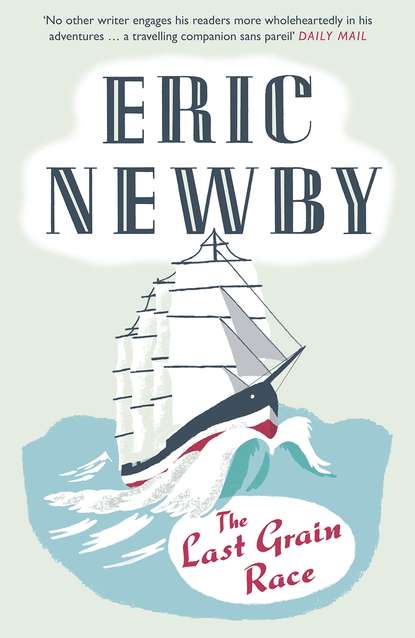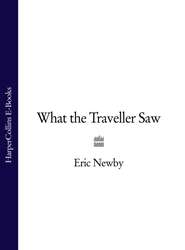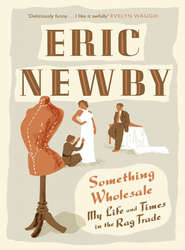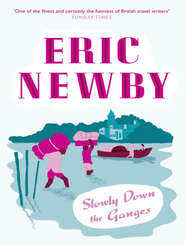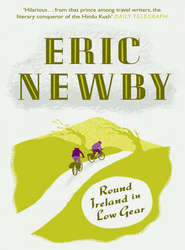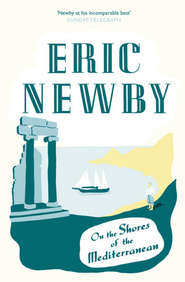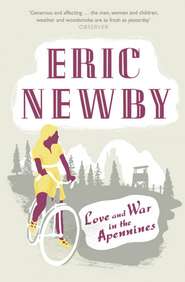По всем вопросам обращайтесь на: info@litportal.ru
(©) 2003-2024.
✖
The Last Grain Race
Настройки чтения
Размер шрифта
Высота строк
Поля
It was a hot September day. I put on the long thick vest and underpants; like all their counterparts in England they were supported mysteriously by a number of tapes which once tied in a knot could never be undone but had to be severed. Over these foundation garments I put layers of unseasonable clothing: thick navy working shirts and trousers of itchy cloth, a seaman’s jersey, stockings and seaboots. Over these went the oilskin coat and trousers, the latter insecurely supported by a single cord. On my head was the storm cap. Even this was disappointing: it was made of patent leather trimmed with imitation Astrakhan. There were flaps that let down over the ears or could be tied up on top of the hat like a deerstalker. Everything was unnecessarily ugly.
The manager was delighted at my transformation. ‘Now, sir,’ he said briskly, ‘if you would like to move about a little…’ I walked a few feet to get what he called ‘the feel’ of the things and the waterproof trousers fell down.
‘You will also require a trunk,’ said the manager. At this moment one of his assistants wheeled one in. It was the sort of trunk that stingy murderers use for the disposal of their victims; covered with bright yellow fabric and fitted with imitation brass locks, it gave off a gluey smell and was sticky to the touch.
I was sweating profusely, unhappy to be looking so ridiculous and miserable about the trunk.
‘I want a wooden sea-chest, not a trunk. That thing will fall to pieces if it gets wet.’
The manager smirked. He was accustomed to this kind of complaint. ‘The sea-chest is a thing of the past,’ he said, ‘are you expecting the fo’c’sle to be filled with water?’
‘As a matter of fact, I am.’
‘In that case,’ he replied rather stiffly, ‘you will no doubt want to take your own precautions. We will wrap these in brown paper.’
On the way back to Hammersmith, from the top of a bus I saw a magnificent trunk in the window of a shop that disposed of railway lost property. The trunk in the East India Dock Road had been an octavo trunk; this was a folio and the next day when I went to see it, I found that it even opened like a book. One side contained numbers of drawers intended for shoes and the other a big space for hanging clothes. It was blacker and grander than I had imagined. A small ticket said: ‘This trunk by Louis Vuitton for sale’, and underneath, more despairingly, ‘Must be disposed of’. I bought it for four pounds, and put my shore-going clothes and my pilot jacket, of which at the time I was inordinately proud, in the space once filled with Paquin dresses. Its small white label, Louis Vuitton. Paris. Nice. Vichy, with its false promise of more gracious living supported me through periods of homesickness and depression.
At about this time occurred the Business with the Caribou Skin Sleeping-bag. It took up a great deal of time that I could have spent more profitably in eating. One of my chief sources of information about life in sailing ships was Basil Lubbock’s Round the Horn Before the Mast. Lubbock, a tall, tough Etonian, had taken part in the gold rush to the Yukon; returning from the Gold Fields in 1899, he had shipped out of ’Frisco in an iron barque and worked his passage home before the mast. Among his possessions was a Caribou sleeping-bag for which he had given a pair of 12 lb. blankets ‘to a man who was camped alongside me at Lake Bennett, on the way into the Klondyke’. He described it as having been made in Newfoundland by the Indians from two caribou skins sewn together with the sinews of the animals. The following passage convinced me that I too must have a caribou skin sleeping-bag.
‘How delightful and cosy I felt turning into my sleeping-bag in the first watch, better far than a dozen blankets. Off the Horn the air is so moist that once one’s blankets are damp they never get dry again; besides which the iron side of the half-deck sweats awfully, and drops on to everything. But when everybody and everything else was wet off the Horn I would crawl into my bag, my underclothes wet, my socks dripping, I did not take them off as the only chance to get them dry was by the heat of my body, and in turning out again I would find my clothes dry, and my feet smoking hot, notwithstanding the wet socks.’
The demand for caribou bags had slumped since the Gold Rush of 98. I learned this after visiting the showrooms of half a dozen manufacturers of camping equipment. In most of them I was met with blank stares of incomprehension. True to type, the assistants in those of the better sort, being asked for something outside their experience, refused to admit the existence of such a bag. In the most elegant of Piccadilly outfitters I was told by a man in a tail coat who looked like an aloof penguin that he had not been made aware of the caribou, and I returned home feeling like a character in an undiscovered sequel to Alice Through the Looking-glass.
Mr Mountstewart suggested the Army and Navy Stores. I was naturally a little wary of him by this time, but he produced that most remarkable work, the Stores Catalogue, which was as thick as a telephone directory, and this, although it did not list caribou skin bags, hinted that even more extraordinary articles could be obtained to order. I therefore decided to pay a visit to Victoria Street.
The man in the department which dealt with camping equipment received my request very well. He had heard of the caribou and could see no reason why its skin should not be turned into a sleeping-bag.
‘I suppose we could get one,’ he remarked rather gloomily. ‘It’ll have to come from one of the Hudson’s Bay posts. We’ll have to barter for it but I’ll take your name and address and let you know.’
‘When will it be here?’ I asked anxiously; time was getting short.
‘It should be here in two years. They’re nasty things. The last one gave the man who slept in it anthrax.’
I thanked him and after looking up ‘Anthrax’ in an encyclopaedia in the book department, I gave up the struggle. I was content. I knew now that if I really wanted a caribou skin bag I could have one. Instead I bought from him a real camel-hair sleeping-bag of four thicknesses made by Jaeger. In 1956 the hair of the camel is as rare as the skin of the caribou and much more expensive. I used it until 1942, when an athletic Egyptian leapt into the back of the truck in which we were driving down from the Desert, and removed three large bedding rolls belonging to myself and two brother officers; mine contained, in addition to all my other possessions, the sleeping-bag.
When I returned home, I found a letter from the owner’s agents telling me to join the sailing vessel Moshulu in Belfast. She was the one ship I had never heard of, and none of the more popular works on sailing ships gave any information about her. Even Mr Mountstewart knew nothing. However, just before I left for Euston he telephoned me. ‘I understand,’ he boomed, ‘that she is extremely large.’
4 (#ulink_204c4ad3-3571-50da-8ef9-d810c8fd7b05)
Op the Rigging (#ulink_204c4ad3-3571-50da-8ef9-d810c8fd7b05)
I crossed on the night steamer from Heysham and as we came into Belfast in the cold early morning I saw for the first time the masts and spars of Moshulu. By comparison the scaffolding of the shipyards, where riveting hammers reverberated about the dark bulk of a new Union Castle liner, seemed solid and rooted in the earth. The barque was invisible, but the four enormously tall masts, fore, main and mizzen, and the less lofty jigger mast, towered into the sky above the sheds of the dockside, not white as I had imagined them, but yellow in the October sunshine.
‘Anyone’s welcome to that,’ said the smooth young steward as he plonked a pot of Oxford marmalade on my table. ‘Nasty great thing.’
I did not have the strength to argue with him. All through breakfast I had felt like someone in a condemned cell and my knees had been knocking together under the influence of a nervous impulse which I had been unable to control.
On the quay when I landed there had been some competition among the waiting taximen for my Vuitton trunk. ‘You’ll be wanting the Grand Central Hotel, most likely?’ said the shaggy owner of the most dilapidated taxi who had finally secured me as a fare. I told him I wanted to go to the Moshulu and as this did not seem to mean anything to him, I pointed to the towering masts, upon which he mumbled something about ‘that big sailer full of Chinks’ and we set off at a crazy speed, lurching into the puddles where the cobbles had subsided and slewing dangerously across the tracks of tank engines that bore down upon us at full steam. I barely noticed these things as I was in terror at the thought of climbing those masts which had a beautiful cold remoteness about them like the North Col on Everest. For the first time in my life I wished that a taxi ride would never end, but it was only three or four hundred yards to where the ship was discharging her cargo in York Dock and, too soon for me, we drew up alongside her. There was no sign of life aboard except on the well deck forward, where some stevedores were still unloading her cargo of grain.
Moshulu taken in Cork (Cobh), June 1936
I left the taximan extracting my trunk from the fore part of his vehicle where it had become jammed between the floor and the roof, and went forward to explore, waiting for a lull in the unloading operations to go up a slippery plank which led over the bulwarks and so on to the deck. When I reached it I began to feel that the taximan might be right about the ship being full of Chinese, for I found myself face to face with a rather squat, flatnosed boy of about seventeen who would have looked more at home outside a nomad tent in Central Asia. From beneath a great shock of disordered hair his eyes stared unwaveringly at me. Only the filthy dungarees in which he was dressed and the oilcan he carried proclaimed him to be a child of the West.
It was his face that finally reassured me. Surely, I thought to myself, such an ugly face has something better behind it. I held out my hand and said: ‘I am Newby, a new apprentice.’
The slant eyes looked at me suspiciously but I thought I could detect a glimmer of interest in them. He did not take my hand but a deep voice finally said, in a way that made me jump, ‘Doonkey.’ Believing this to be an epithet directed at me, I began to prepare myself for a fight. None of the books I had read said anything about a situation like this. Their heroes fought only after months of insult. Fortunately I was mistaken and he put me at ease by pointing at himself and saying: ‘Jansson, “Doonkey,” orlright,’ and at the same time grasping my hand which completely disappeared in his.
This was one of the two Donkeymen responsible for the proper functioning of the donkey engine, the diesel, brace and halliard winches and all things mechanical on board. In spite of his villainous appearance he was really the most tolerant and long-suffering of people, and we went through the entire voyage without trouble.
I indicated the trunk on the dock, and Jansson said: ‘Orlright’ again, and we went down the gangplank to the taxi. The driver was waving a piece of the roof of his vehicle which had broken off in his efforts to dislodge the trunk and was telling a little knot of stevedores everything he knew about me. As our acquaintance had been short he was drawing effortlessly on his own ample imagination. I was anxious to be rid of him and overpaid him considerably, but this encouraged him to ask for a large sum for the damage to his taxi, for which he said I was responsible. The stevedores closed in to support their countryman, but Jansson made such a threatening gesture with his tattooed forearm that they dispersed and the driver, finding himself outnumbered, gave up the struggle and drove away.
We now lifted the trunk and tried to make our way up the plank, but it was steep and my leather-soled shoes slipped backwards. ‘Orlright,’ said Jansson. He spat on his hands, slung the trunk on his back and shot up the incline like a mountain goat depositing it with a great crash on the deck. I followed him. My luggage and I were aboard.
We were now on the starboard side of the foredeck by the square opening of No 2 hatch. A travelling crane was dipping over it like a long-legged bird, pecking up great beakfuls of sacks. Underfoot was a slush of oil and grain; the oil came from a diesel winch which lay about the deck completely dismembered.
‘Kom,’ said Jansson and kicked open a door. I followed him through it and found myself in the starboard fo’c’sle. I had imagined the ship to be deserted but once I was accustomed to the half light and the thick pall of cigarette smoke that hung between the deck and the low ceiling, I was able to make out the figures of half a dozen men in overalls who were silently regarding me whilst sitting at a long table which ran the whole length of the fo’c’sle. Most of them seemed to be between seventeen and twenty years of age; all were muscular and pallid.
‘Good morning,’ I said, and their silent impassive staring went on until, like a long-awaited echo, they rumbled some kind of reply. Fortunately Jansson handed me a mug of coffee which he poured from a big white enamel jug. Someone else on the other side of the table shoved over a can of milk, a loaf of bread and a ten-pound tin of margarine. I helped myself to my second breakfast; there were some perfunctory introductions, and munching steadily, I listened to them discussing (without visible enthusiasm) my English nationality. At the same time I was able to take note of my surroundings. They were not inviting.
The fo’c’sle was about twenty feet long and thirteen feet-wide; its steel bulkheads were painted light grey; round the four sides were bunks which looked like double-banked coffins in an Italian cemetery. The lower ones mostly had home-made curtains which could be drawn when the owner was inside. Only one of the bunks was now occupied, but the curtains were half open, revealing an inert figure with its face to the wall, from which groans escaped at intervals. Down the centre of the fo’c’sle was the long narrow table, its feet screwed to the deck, the top pitted by the scrubbing and scouring of several generations of sailors. Around the edge was a raised beading, or fiddle, intended to stop the crockery sliding off in heavy weather. On either side of the table were heavy wooden benches cleated down to the deck.
Some natural illumination came from the portholes in the ship’s side, one or two of which looked out on to the well-deck; but the light was more or less obscured by a chaos of wooden sea-chests, oilskins and mysterious roped bundles which completely filled the upper bunks. Above my head was a teak skylight with a number of thick glasses set in it through which daylight seeped reluctantly. Artificial light was provided by a heavy lantern swinging perilously low above the centre of the table. Behind me was a cupboard with a shelf for crockery, and another for bread, margarine and condensed milk. Below the cupboard was a white drinking-water tank with a brass tap. The crew had just finished breakfast; on the table were the remains of this ghastly repast: some sort of thick brown stew with macaroni, now rapidly congealing, and what seemed to me, judging by the mounds of skins, an unhealthy quantity of potatoes. Standing among the ruins was an archaic gramophone with a fluted horn. This was now wound up and amidst sighs of anticipation a record was put on. There followed a preparatory churning as the needle engaged itself in the grooves and then the most appalling dissonance of sounds burst upon my ears. After I had become used to the din, I distinguished the words:
There’s a little Dutch mill on a little Dutch hill
Where the little Dutch stars shine bright.
Now a little Dutch boy and his little Dutch girl
Fell in love by the light of the moon one night …
This was Moshulu’s only record and though I may probably never hear it again, it will always remind me of Belfast and the time after Munich.
The playing of the record released any inhibitions my arrival had imposed on the company. Conversation became animated and deafening, and as the song ground itself to a standstill the boy sitting next to me, a Lithuanian whose name I later discovered was Vytautas Bagdanavicius, turned to me, flashed a brilliant smile and said happily ‘No good’ as he wound the motor and started the record again.
Jansson, wishing to show off every item of interest, pointed at the body in the bunk and winked significantly.
‘Is he sick?’ I asked.
‘Bloddy sick, drank too much Akvavit last night,’ said Jansson. To confirm this he began prodding the blankets and when this had no effect started to roll whoever it was backwards and forwards like a piece of dough on a pastry-board, roaring ‘Rise op, rise op.’ Upon this there was a violent heaving among the blankets.
‘Perkele, perkele, perkele; devils, devils, devils,’ screamed a furious voice from the bed, mounting to a crescendo like an engine on a bench being tested to destruction. Even the hardened audience jibbed at the rich descriptive obscenity which followed and begged Jansson to leave him alone. He did so, and just like an engine, the voice died away.
Somewhere on the deck, a whistle blew. One by one the occupants of the starboard fo’c’sle went out to continue their work and soon the sounds of hammering proceeded from the port side of the ship where most of them were over the side chipping rust and painting.
Because Vytautas, the Lithuanian, had been watchman all night, he did not go with them. He advised me to get into my working clothes and report my arrival to the Mate. First he helped me stow my trunk in a convenient space behind the fo’c’sle door. Gingerly I put on my navy blue dungarees which seemed stiff and unprofessional compared with the faded blue overalls worn by most of the boys.
‘Do not leave anything in the fo’c’sle,’ said Vytautas in his rather oriental sing-song. ‘These stevedores are thieves. At sea we are all right. Here … nobody is good.’





